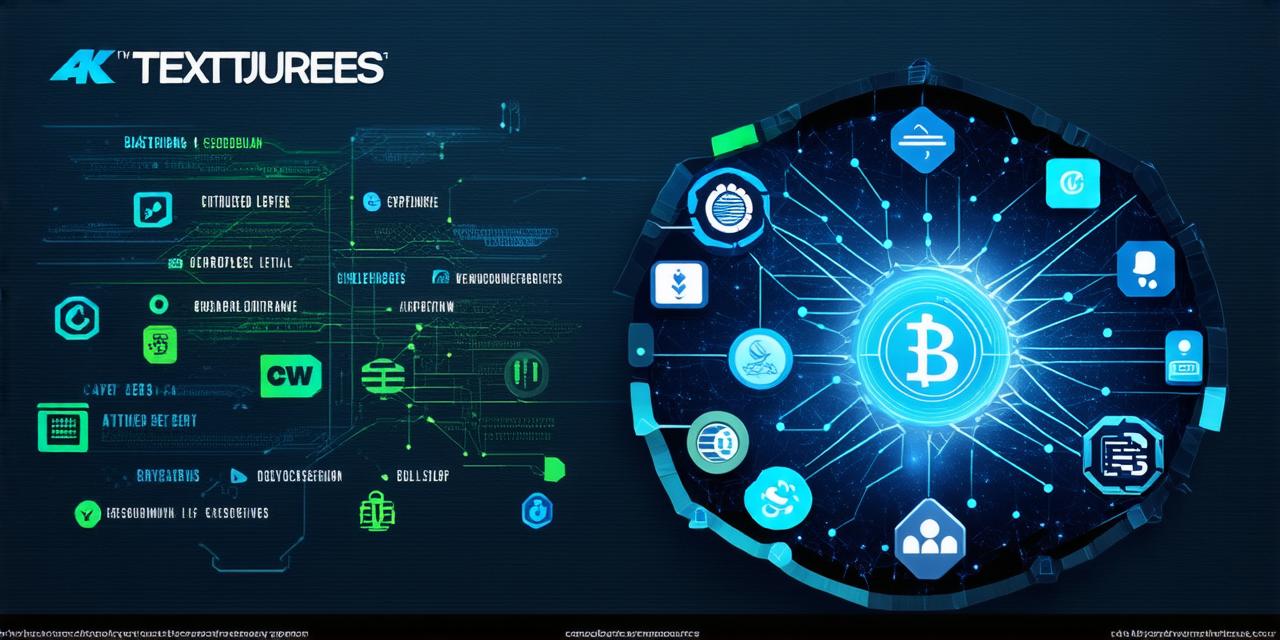Blockchain technology is a distributed database that allows for secure and transparent transactions without the need for intermediaries. It is based on cryptographic principles and operates through a network of computers, each of which has a copy of the entire database.
What Is Blockchain?
At its core, blockchain is a decentralized ledger that records transactions in a secure and transparent manner. Each transaction is verified by multiple nodes on the network before being added to the ledger, ensuring that the data is accurate and tamper-proof. The ledger is stored across the entire network, making it resistant to hacking and ensuring that no single entity has control over the data.
The History of Blockchain

Blockchain technology was first introduced in 2008 with the creation of Bitcoin, a decentralized digital currency. Since then, blockchain has evolved to become a solution for various industries, including finance, healthcare, and logistics. The rise of blockchain can be attributed to its ability to provide secure and transparent transactions without the need for intermediaries, making it an attractive solution for businesses looking to improve efficiency and reduce costs.
How Does Blockchain Work?
Blockchain operates through a network of computers, each of which has a copy of the entire database. Transactions are verified by multiple nodes on the network before being added to the ledger, ensuring that the data is accurate and tamper-proof. The ledger is stored across the entire network, making it resistant to hacking and ensuring that no single entity has control over the data.
Blockchain also uses cryptographic principles, such as hashing and digital signatures, to ensure the security of the transactions. Hashing is a process that converts data into a fixed-length string of characters, making it difficult to reverse engineer the original data. Digital signatures are used to verify the identity of the sender and ensure that the transaction has not been tampered with.
The Benefits of Blockchain
Blockchain technology provides several benefits, including increased security, transparency, and efficiency. The decentralized nature of blockchain makes it resistant to hacking and ensures that no single entity has control over the data. Transactions are verified by multiple nodes on the network, ensuring that the data is accurate and tamper-proof. Blockchain also provides a transparent ledger that can be accessed by anyone on the network, making it easier to track transactions and ensure compliance with regulations.
Blockchain technology also improves efficiency by reducing the need for intermediaries. By eliminating the middleman, businesses can save time and money, making it an attractive solution for various industries. Blockchain technology can also be used to create smart contracts, self-executing contracts that automatically enforce the terms of the agreement.
Real-Life Examples of Blockchain in Action
Blockchain technology is being used in a variety of industries, including finance, healthcare, and logistics. In finance, blockchain technology is being used to create decentralized digital currencies, such as Bitcoin and Ethereum. These currencies allow for secure and transparent transactions without the need for intermediaries, making them an attractive solution for businesses looking to improve efficiency and reduce costs.
In healthcare, blockchain technology is being used to securely store patient data and ensure that it is only accessible by authorized parties. This provides increased privacy and security for patients while also improving the accuracy of medical records. Blockchain technology is also being used to track the supply chain of drugs, ensuring that they are safely transported from manufacturer to end-user.
In logistics, blockchain technology is being used to improve the efficiency of supply chains by providing a transparent ledger that can be accessed by anyone on the network. This allows for faster and more accurate tracking of shipments, reducing the risk of loss or damage. Blockchain technology is also being used to create smart contracts that automatically enforce the terms of the agreement, reducing the need for manual intervention.
The Future of Blockchain
The future of blockchain technology looks bright, with new applications emerging in various industries.
